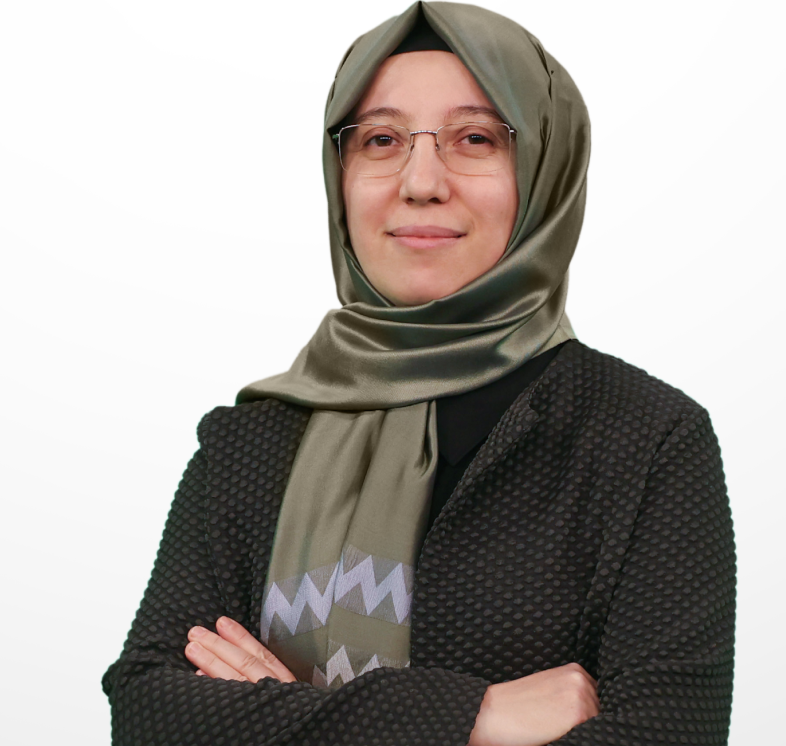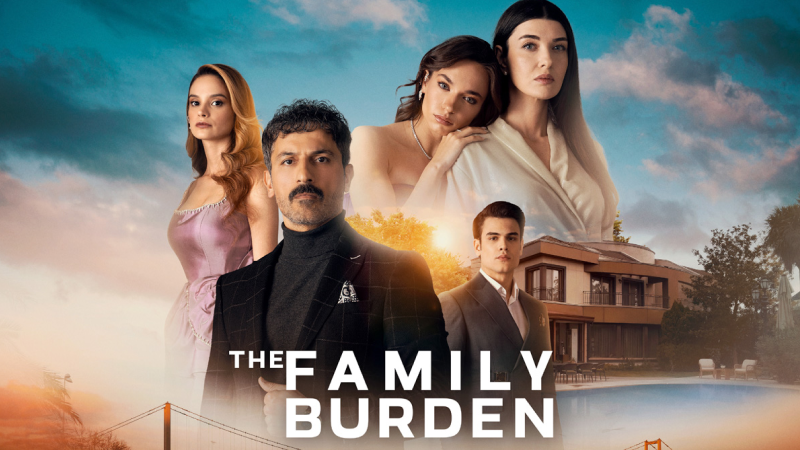Kanal D International Brings Premium Dramas and Proven Hits to MIPCOM
Elif Tatoğlu, Distribution Strategy and Sales Director, is ready to meet clients during the MIPCOM market with a strong portfolio of premium dramas and proven hits. In this interview, she talks about the distributor’s strategy for growth and adapting to the new challenges on the market with content that suits various platforms and tastes.

Elif Tatoğlu, Distribution Strategy and
Sales Director, Kanal D
Elif, what strategic priorities shaped Kanal D International’s current MIPCOM slate, and which new titles are you most excited to present at this year’s market?
This year, our MIPCOM slate was shaped by a balance of powerful new dramas and timeless library titles that continue to appeal audiences worldwide. Our key priority has been to deliver stories that combine strong character-driven conflicts with universal themes that travel easily across cultures.
At the forefront is Sins and Roses, a highly emotional drama produced by NGM, starring Murat Yıldırım and Cemre Baysel. Even before it started airing, we have closed a few deals which will be announced soon. Alongside it, we are highlighting The Family Burden, Secret of Pearls, Three Sisters and Farewell Letter, which have all proven their international potential. Complementing these are our classics - Fatmagül, Forbidden Love, Time Goes By, Ruthless City, and Kuzey Güney - which remain staples in our portfolio. This combination ensures we can meet the demand for both fresh titles and proven best-sellers.
Series like Time Goes By, The Family Burden, A Father’s Promise, For My Son, Sunshine Girls, etc. have seen strong sales. What do you attribute their success to, and how do they help shape your overall best-seller portfolio?
Their success lies in the way they capture deeply human emotions through stories that are both universal and relatable. Themes like love, loss, revenge, family ties, and resilience cut across borders, and our series portray them with authenticity. What makes them stand out even more is the high production quality, strong scripts, and outstanding performances that bring these emotions to life in a powerful and convincing way.
These dramas not only drive strong ratings but also reinforce the diversity of our catalog. Having both contemporary, character-driven titles like Time Goes By and For My Son and emotional sagas like The Family Burden creates a portfolio that appeals to multiple audiences.
You recently expanded Time Goes By into Colombia, Ruthless City into Brazil, and licensed Three Sisters as a format to Kazakhstan. Which new territories or markets are you targeting next, and why?
We see strong potential for growth in Latin America, MENA, and Asia. Latin America remains one of the most loyal regions for Turkish drama, and our latest deals confirm that audiences there continue to embrace our stories. MENA is a natural extension, especially with our recent format deal with MBC, while Asia—particularly markets like India and Southeast Asia—is becoming increasingly receptive to Turkish content.
Our strategy is to deepen our presence in these regions while also exploring opportunities in Europe and North America, where demand for premium international drama is growing.
With a growing emphasis on format licensing—such as adapting Time Goes By for MBC Group and Three Sisters in Kazakhstan—how is your sales strategy evolving across scripted, formats, and premium drama sectors?
Our sales strategy is evolving to create balance across all three segments. Finished drama remains at the heart of what we do, but format sales are becoming a key growth driver as more markets look for local productions with proven storylines. Titles like Fatmagül, Forbidden Love, War of the Roses, and Secret of Pearls are strong examples of our catalog’s adaptability.

We also have a catalog filled with proven success titles, many of them relatively older. Yet, while productions may age, the stories never do. Their timeless themes ensure they always find a home with audiences, whether as finished tapes or when reimagined with local cast and acting talent. This ability to travel across time and cultures underscores the versatility of Kanal D’s catalog, making it a consistent performer across diverse markets.
At the same time, premium dramas like Sins and Roses allow us to position ourselves in the high-value segment of the market, where buyers are increasingly seeking star-driven, high-production dramas. Together, this layered strategy—timeless finished dramas, adaptable formats, and premium new content—keeps our portfolio both commercially resilient and globally relevant.
Can you share whether any new co-production deals are currently in the works, and if you’re actively seeking co-production partners? What advantages do you see in collaborating on content creation?
We are actively exploring co-production opportunities. While I can’t disclose specifics at this stage, we are in discussions with international partners interested in joining forces on projects with strong cross-cultural potential.
Co-productions allow us to combine the creative strengths of Turkish drama with the insights and resources of global partners. This not only increases the reach and appeal of the content but also ensures that more resources can be put into production, with stories designed for international audiences from the outset.
What key challenges—such as localization, competition, or platform dynamics—does Kanal D International face in distributing content worldwide? Where do you see the greatest opportunities for growth?
One of the biggest challenges today lies in the increasing cost of localization-dubbing and subtitling remain essential for global reach, but they are becoming heavier investments for both distributors and buyers. At the same time, global economic pressures have led to shrinking acquisition budgets and fewer international slots, which intensifies competition among content providers.
Despite these challenges, we see enormous opportunities ahead. Advances in AI-driven dubbing and localization can help control costs and accelerate turnaround, making it easier to serve multiple markets simultaneously. The continued rise of streaming platforms, either paid or ad-supported is also creating new pathways to reach younger audiences and territories that were previously less accessible. As the industry shifts from primarily free-to-air broadcasting toward more digital-first models, our catalog’s universal themes, strong character development, and proven adaptability give us a significant advantage in both finished drama sales and format licensing.

From your perspective, what are the current trends in Turkish fiction—like multi-generational sagas or emotionally driven storytelling—that continue to resonate strongly with international audiences?
Turkish fiction continues to thrive on its ability to tell multi-generational, emotionally rich stories that feel authentic. Family dramas, sagas about resilience, and love stories layered with betrayal and secrets remain at the core.
At the same time, there’s a rising demand for dramas that combine these classic elements with more contemporary storytelling—faster pacing, character-driven plots, and themes that reflect today’s realities. This balance between tradition and innovation is what makes Turkish dramas stand out globally.
How is Kanal D adapting its sales strategy to work more effectively with streaming platforms—with their different release models, dubbing/subtitle needs, and strategic priorities?
While our priority remains free-to-air and pay TV, we are also making the best of all available windows, including AVOD, SVOD, and PVOD. Each serves a different purpose. AVOD helps us maximize reach and audience sampling, SVOD offers strong value for serialized storytelling, and PVOD allows us to position high-demand dramas with premium appeal. Streaming platforms have also created new opportunities for our library titles, enabling them to find fresh audiences who may be discovering Turkish drama for the first time.
Short-form storytelling and microdramas are gaining attention globally. Is Kanal D International exploring these formats, and if so, how do they fit into your portfolio and appeal to new viewer segments?
Yes, we are actively exploring short-form storytelling and microdramas, but in a way that builds on the strengths of our catalog. Our first step has been to develop Turkish versions by converting selected titles from our existing library into micro-dramas. We are very selective about which series to adapt, as the format needs to be suitable for short, bingeable viewing without losing narrative depth.
At the same time, we are also responding to demand from clients who want to create their own local versions of these shorter formats. This opens up new opportunities for format licensing and allows us to expand into viewer segments-particularly younger audiences-who consume content in shorter bursts. Overall, we see microdramas as a natural extension of our portfolio, offering another layer of versatility while complementing our long-form, premium dramas.
This year, our MIPCOM slate was shaped by a balance of powerful new dramas and timeless library titles that continue to appeal audiences worldwide. Our key priority has been to deliver stories that combine strong character-driven conflicts with universal themes that travel easily across cultures.
At the forefront is Sins and Roses, a highly emotional drama produced by NGM, starring Murat Yıldırım and Cemre Baysel. Even before it started airing, we have closed a few deals which will be announced soon. Alongside it, we are highlighting The Family Burden, Secret of Pearls, Three Sisters and Farewell Letter, which have all proven their international potential. Complementing these are our classics - Fatmagül, Forbidden Love, Time Goes By, Ruthless City, and Kuzey Güney - which remain staples in our portfolio. This combination ensures we can meet the demand for both fresh titles and proven best-sellers.
Series like Time Goes By, The Family Burden, A Father’s Promise, For My Son, Sunshine Girls, etc. have seen strong sales. What do you attribute their success to, and how do they help shape your overall best-seller portfolio?
Their success lies in the way they capture deeply human emotions through stories that are both universal and relatable. Themes like love, loss, revenge, family ties, and resilience cut across borders, and our series portray them with authenticity. What makes them stand out even more is the high production quality, strong scripts, and outstanding performances that bring these emotions to life in a powerful and convincing way.
These dramas not only drive strong ratings but also reinforce the diversity of our catalog. Having both contemporary, character-driven titles like Time Goes By and For My Son and emotional sagas like The Family Burden creates a portfolio that appeals to multiple audiences.
You recently expanded Time Goes By into Colombia, Ruthless City into Brazil, and licensed Three Sisters as a format to Kazakhstan. Which new territories or markets are you targeting next, and why?
We see strong potential for growth in Latin America, MENA, and Asia. Latin America remains one of the most loyal regions for Turkish drama, and our latest deals confirm that audiences there continue to embrace our stories. MENA is a natural extension, especially with our recent format deal with MBC, while Asia—particularly markets like India and Southeast Asia—is becoming increasingly receptive to Turkish content.
Our strategy is to deepen our presence in these regions while also exploring opportunities in Europe and North America, where demand for premium international drama is growing.
With a growing emphasis on format licensing—such as adapting Time Goes By for MBC Group and Three Sisters in Kazakhstan—how is your sales strategy evolving across scripted, formats, and premium drama sectors?
Our sales strategy is evolving to create balance across all three segments. Finished drama remains at the heart of what we do, but format sales are becoming a key growth driver as more markets look for local productions with proven storylines. Titles like Fatmagül, Forbidden Love, War of the Roses, and Secret of Pearls are strong examples of our catalog’s adaptability.

We also have a catalog filled with proven success titles, many of them relatively older. Yet, while productions may age, the stories never do. Their timeless themes ensure they always find a home with audiences, whether as finished tapes or when reimagined with local cast and acting talent. This ability to travel across time and cultures underscores the versatility of Kanal D’s catalog, making it a consistent performer across diverse markets.
At the same time, premium dramas like Sins and Roses allow us to position ourselves in the high-value segment of the market, where buyers are increasingly seeking star-driven, high-production dramas. Together, this layered strategy—timeless finished dramas, adaptable formats, and premium new content—keeps our portfolio both commercially resilient and globally relevant.
Can you share whether any new co-production deals are currently in the works, and if you’re actively seeking co-production partners? What advantages do you see in collaborating on content creation?
We are actively exploring co-production opportunities. While I can’t disclose specifics at this stage, we are in discussions with international partners interested in joining forces on projects with strong cross-cultural potential.
Co-productions allow us to combine the creative strengths of Turkish drama with the insights and resources of global partners. This not only increases the reach and appeal of the content but also ensures that more resources can be put into production, with stories designed for international audiences from the outset.
What key challenges—such as localization, competition, or platform dynamics—does Kanal D International face in distributing content worldwide? Where do you see the greatest opportunities for growth?
One of the biggest challenges today lies in the increasing cost of localization-dubbing and subtitling remain essential for global reach, but they are becoming heavier investments for both distributors and buyers. At the same time, global economic pressures have led to shrinking acquisition budgets and fewer international slots, which intensifies competition among content providers.
Despite these challenges, we see enormous opportunities ahead. Advances in AI-driven dubbing and localization can help control costs and accelerate turnaround, making it easier to serve multiple markets simultaneously. The continued rise of streaming platforms, either paid or ad-supported is also creating new pathways to reach younger audiences and territories that were previously less accessible. As the industry shifts from primarily free-to-air broadcasting toward more digital-first models, our catalog’s universal themes, strong character development, and proven adaptability give us a significant advantage in both finished drama sales and format licensing.

Sins and Roses
From your perspective, what are the current trends in Turkish fiction—like multi-generational sagas or emotionally driven storytelling—that continue to resonate strongly with international audiences?
Turkish fiction continues to thrive on its ability to tell multi-generational, emotionally rich stories that feel authentic. Family dramas, sagas about resilience, and love stories layered with betrayal and secrets remain at the core.
At the same time, there’s a rising demand for dramas that combine these classic elements with more contemporary storytelling—faster pacing, character-driven plots, and themes that reflect today’s realities. This balance between tradition and innovation is what makes Turkish dramas stand out globally.
How is Kanal D adapting its sales strategy to work more effectively with streaming platforms—with their different release models, dubbing/subtitle needs, and strategic priorities?
While our priority remains free-to-air and pay TV, we are also making the best of all available windows, including AVOD, SVOD, and PVOD. Each serves a different purpose. AVOD helps us maximize reach and audience sampling, SVOD offers strong value for serialized storytelling, and PVOD allows us to position high-demand dramas with premium appeal. Streaming platforms have also created new opportunities for our library titles, enabling them to find fresh audiences who may be discovering Turkish drama for the first time.
Short-form storytelling and microdramas are gaining attention globally. Is Kanal D International exploring these formats, and if so, how do they fit into your portfolio and appeal to new viewer segments?
Yes, we are actively exploring short-form storytelling and microdramas, but in a way that builds on the strengths of our catalog. Our first step has been to develop Turkish versions by converting selected titles from our existing library into micro-dramas. We are very selective about which series to adapt, as the format needs to be suitable for short, bingeable viewing without losing narrative depth.
At the same time, we are also responding to demand from clients who want to create their own local versions of these shorter formats. This opens up new opportunities for format licensing and allows us to expand into viewer segments-particularly younger audiences-who consume content in shorter bursts. Overall, we see microdramas as a natural extension of our portfolio, offering another layer of versatility while complementing our long-form, premium dramas.









































